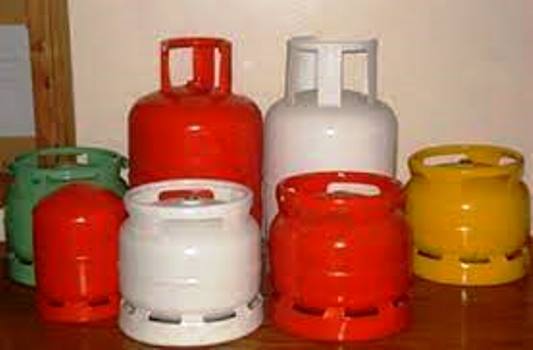Many Nigerians worry that their cooking gas runs out faster than expected, leading them to believe they’re not getting their money’s worth. However, the reason your gas finishes quickly may not always lie with the gas station – it could be due to a range of other factors.
Cooking gas, commonly known as LPG (Liquefied Petroleum Gas), is used in homes for cooking, boiling water, and even in industries.
LPG is derived from crude oil and stored in pressurized cylinders.
Its price has been climbing steadily, with the average cost of a kilogram currently hovering around N1,300, according to Mr Kabri Hassan from Uzo Son Gas Ltd. Some places even saw the price rise as high as N1,500 between February and March.
Though LPG is cleaner and more efficient than using firewood or charcoal, the recent spike in gas prices has forced many people to find ways to make their gas last longer. Fortunately, simple practices can help extend the life of your gas cylinder.
Maximizing gas efficiency: Simple steps
To save on gas, start by being prepared before you turn on the burner. Have all ingredients and cooking tools ready to avoid unnecessary heat. Lower the flame whenever possible and ensure your pot fully covers the burner for better heat distribution. Clean stove burners regularly for optimal performance, and try not to overcook your food, which can waste gas.
A resident of Sokoto State, Miss Ibukun Tayo, shares that she refills her 3kg gas cylinder every two weeks, usually purchasing 2kg at a time. With gas prices rising, she has adopted some of these strategies to cut costs.
Why your gas might be running out faster
Aside from everyday practices, there are other reasons your cooking gas may be depleting quickly. Gas in Nigeria typically contains an 80% butane and 20% propane mix.
If your gas contains more propane than the standard ratio, it will burn faster, causing your cylinder to run out sooner. Propane burns more quickly than butane, so any increase in propane content speeds up gas consumption.
Small leaks from loose hose clips, faulty valves, or worn-out parts can also cause gas loss. In fact, poorly designed gas burners and cookers can contribute to inefficiency. If the gas orifice in your burner is too large, it will waste gas. Similarly, burners with oversized air openings can lead to faster depletion.
The industry’s perspective
A gas seller in Sokoto State, Mr. Mustapha Isa adds that most Nigerians believe they’re being shortchanged when their gas finishes quickly. However, the gas station may not be at fault—several factors, like faulty equipment and incorrect gas composition, maybe the real cause.
In addition, the Nigerian Association of Liquefied Petroleum Gas Marketers (NALPGAM) has warned of potential price hikes due to foreign exchange rates. Executive Secretary Bassey Essien explains that even locally produced LPG is priced in dollars, meaning fluctuations in the naira can affect gas prices.
While the government has made efforts to boost local LPG production, the long-term price stability of cooking gas remains uncertain. For now, adopting good gas management practices is the best way to stretch your gas supply and avoid spending more than necessary.
By taking steps to ensure your cooking setup is efficient, you can significantly reduce gas waste and make each refill last longer, even as prices rise.


